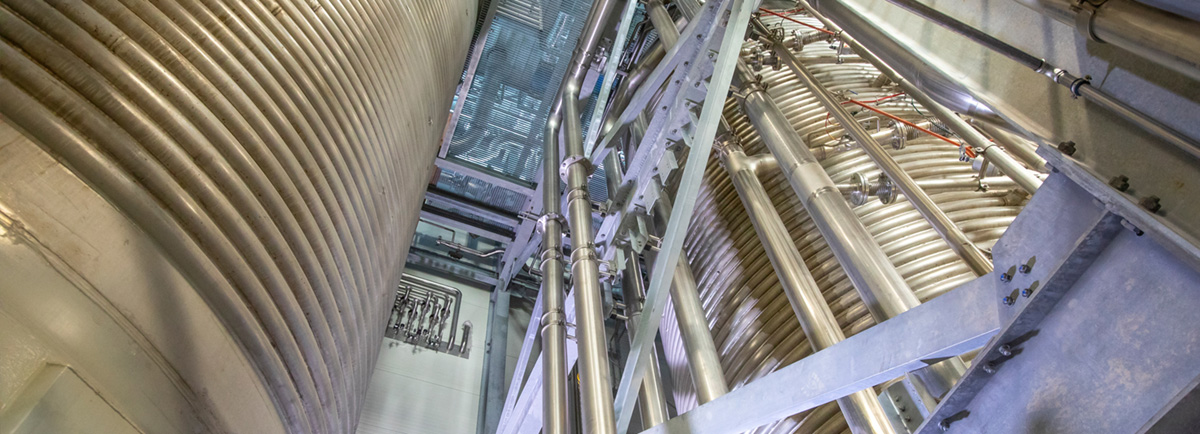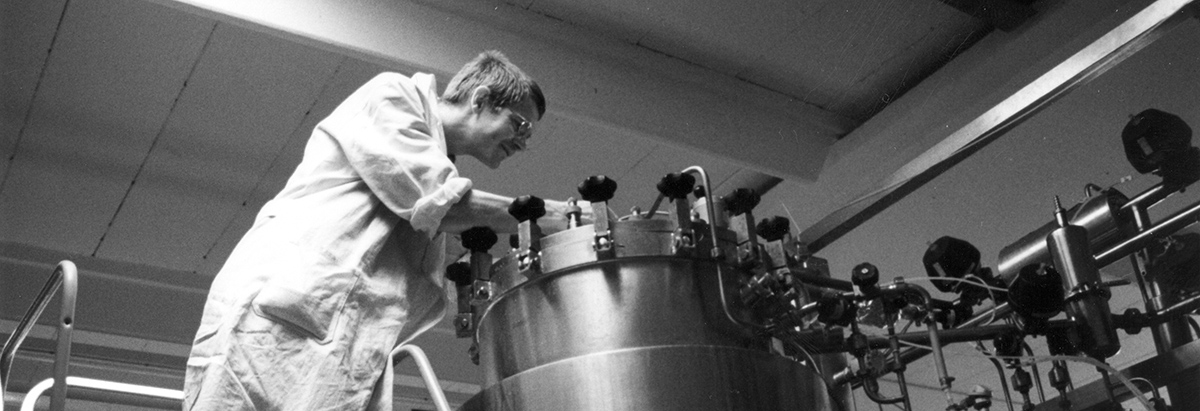This is
INNOVATIVE. RESPONSIBLE. PIONEERING.
We are deeply rooted in research and science. Founded out of a university institute, we research and produce nematodes and other natural organisms that can supplement or even replace chemical agents. Today, we are still a family-owned business based in Kiel Schwentinental. At the same time, we are one of the world’s largest producers of biological plant protection through fermentation. Our customers are industrial producers, farmers, horticulturalists, and hobby gardeners alike on all inhabited continents.
All around the globe, we offer a natural alternative to chemical plant protection – and make a lasting contribution towards natural gardening and farming, the future of agriculture, and world nutrition.
Our vision
e-nema provides natural solutions for a cleaner environment, the future of agriculture and the future of the next generation. And for the future of our planet.
Our Mission
Here at e-nema we research and produce nematodes and microorganisms to be used alongside with or replace chemical agents. As a global company, we make a lasting contribution to agriculture and natural plant protection.
Responsibility
Chemical products used in parks, gardens and agriculture are a threat to the health of plants, insects, birds, mammals, amphibians, and humans alike. Chemical products were a short-term solution to produce more crops. They are not a sustainable solution for the future. The costs for our planet’s eco systems – and for humanity – are simply too high.
The solution lies in nature: Biological plant protection products protect our planet’s soils and water resources, reduce air pollution, and protect biodiversity. That is exactly the type of product we make at e-nema. And we make sure that our products are useful to farmers and hobby gardeners, horticulturists, and growers alike. Green products, for greener and healthier lawns, gardens, and farms.
Research
High-Tech, low Impact
In the early 1960s, the US-American biologist Rachel Carson published an alarming text on the risks of chemical insecticides in agriculture. Her book titled "Silent Spring" received a lot of attention and is now recognized to have played a key role in kicking off the environmental movement in the United States. Looking back, however, it had little consequence: Billions of tons of insecticides have since been introduced to our fields and meadows. With a lasting impact on soil, plants, animals, people and eco systems.
But natural alternatives exist. In the 1980s, Australian, American, and German scientists set out to develop a process to breed a biological alternative to pest control. Nematodes are such an alternative.
Groundbreaking research at Kiel University
In 1989, a group of researchers at the University of Kiel headed by Dr. Ralf-Udo Ehlers hit a scientific milestone: For the first time, the scientists were able to successfully breed insect-pathogenic nematodes in a bioreactor. In the years that followed, the scientists in Kiel perfected their new liquid cultivation method and, in 1997, founded the e-nema GmbH. Their goal was simple: to translate their scientific work into marketable products and make these products available to the public.
Today, the e-nema GmbH is a successful company that actively contributes to research and development. An international team of researchers works to further improve our processes and products and to discover new solutions for plant protection, aquaculture and biocatalysis in our laboratories. Our partners are scientific institutions and universities around the world. We are a regular fixture on international biotech conferences and an important partner in the field of biotechnology. At the same time, we kept the spirit of an agile startup business.
PRODUCTION
Signs of growth
We began production in 1997 when we fermented Heterorhabditis bacteriophora, an insect-pathogenic nematode, in a 500-liter bioreactor. We now breed varied species of nematodes and bacteria as well as several yeasts and fungi in bioreactors of various sizes.
We produce both large and small batches of microorganisms in our fermenters. The sterile process required to make this work takes 14 days – and is an expertise few companies around the world share. We breed nematodes for our own products, which we sell under the brand name e-nema, and also for third party companies. And we are prepared to grow. Our fermenters of different shapes and sizes are ready for larger batches and for an increasing demand for natural plant protection products.

Location
Kieler Förde is our home
The home of our company, Kiel-Schwentinental, combines the best of two worlds. Thanks to our vicinity to the University of Kiel, the roots of the e-nema GmbH, there is continuous scientific exchange and a constant influx of highly qualified staff. An ICE train station and a distance of just about 100 km from Hamburg airport means we are easy to reach no matter where you come from.
Kiel itself sits on the Kieler Förde, an inlet of the Baltic Sea. The open sea is just 17 km away. In the other direction is the Holstein Switzerland region where nature and recreation await. All of this means that Kiel offers a great balance of culture and nature. Yet another reason we keep attracting brilliant minds to our growing company.

History
From research to application
We did not invent the concept of nematodes for pest control – but we were the first to cultivate them. In 1989, Dr. Ralf Udo Ehlers and his research team were first able to breed insect-pathogenic nematodes in a bioreactor as part of a research project at the University of Kiel. Eight years later, Dr. Ehlers, Arne Peters and Tillmann Frank founded the e-nema GmbH with its headquarters in Schwentinental close to Kiel. Their goal: translating scientific innovation into user- and eco-friendly products. Their mission: making organic plant protection available to as many users as possible.
Following the retirement of one of the three company founders, we are expanding the circle of shareholders to include a holding company that is personally affiliated with us. This allows us to focus all our energies and resources on the research, development and production of natural plant protection products. We have been very successful over the past 26 years, but one thing is certain: the story of biological application strategies using beneficial organisms has only just begun.
